Chinese cinema has a rich history that dates back to the early 20th century. Over the years, Chinese movies have gained international recognition for their unique storytelling style, visually stunning cinematography, and impactful performances.
From epic historical dramas to heartwarming romantic comedies, Chinese cinema offers a diverse range of films that cater to a wide variety of audiences.
Some of the most iconic Chinese movies include classics like “Raise the Red Lantern” and “Farewell My Concubine,” as well as modern hits like “Crouching Tiger, Hidden Dragon” and “The Grandmaster.”
Best Chinese Movies
Whether you’re a fan of martial arts action or sweeping dramas, there’s a Chinese movie out there for everyone to enjoy.
1. The Goddess (1934)
“The Goddess” is a 1934 Chinese silent film directed by Wu Yonggang and starring Ruan Lingyu in the lead role. The film tells the story of a young mother who becomes a prostitute to support her son and the struggles she faces in society due to her profession.
It is considered a masterpiece of Chinese cinema and a landmark in the career of Ruan Lingyu, who tragically committed suicide the same year the film was released.
“The Goddess” is notable for its portrayal of the hardships faced by women in Chinese society during the early 20th century and for its use of social realism to critique the exploitation of women.
The film was banned by the Nationalist government in China upon its release but has since gained recognition as one of the greatest Chinese films ever made.
2. Street Angels (1937)
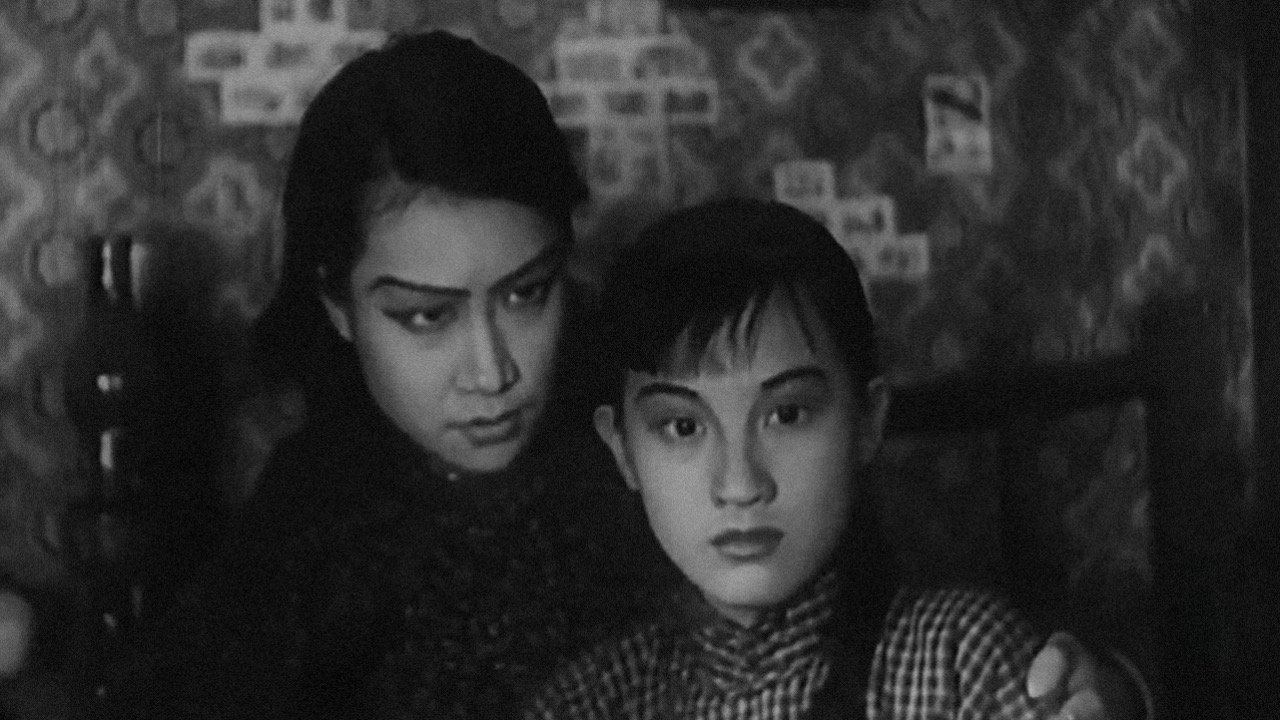
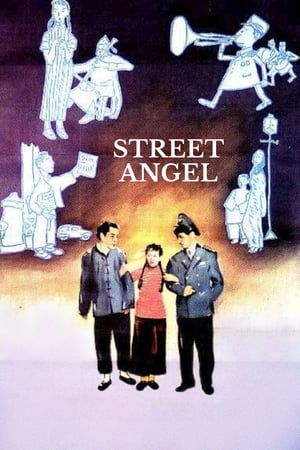
Street Angel
1937 • 1h 31min • ★ 6.6/10 • China
Directed by: Muzhi Yuan
Cast: Zhao Dan, Wei Heling, Xuan Zhou, Jiting Wang, Feng Zhi-Cheng
In old Shanghai, two sisters, a prostitute and a singer, try to escape from the local scoundrels with the help of a trumpet player and a newspaper seller.
“Street Angels” is a classic Chinese film from 1937 directed by Yuan Muzhi. The film tells the story of a group of street children living in Shanghai during the 1930s, and their struggles to survive in the harsh and poverty-stricken environment of the city.
The film follows the lives of three street children: Xiao Yun, Xiao Zhuang, and Xiao Hong, who work as pickpockets and beggars to earn a living. Despite their difficult circumstances, the children maintain a sense of hope and optimism, and they support each other through their struggles.
“Street Angels” is notable for its realistic and gritty portrayal of urban poverty and social inequality in 1930s China. The film explores themes of survival, resilience, and the power of human connection, and it offers a powerful critique of the social and economic conditions that led to the marginalization and exploitation of the urban poor in China.
“Street Angels” is widely regarded as a classic of Chinese cinema and is considered an important work of social realism. The film has been praised for its strong performances, nuanced characterizations, and powerful social commentary, and it remains a powerful and moving work of cinema today.
3. Spring in a Small Town (1948)
“Spring in a Small Town” is a classic Chinese film released in 1948, directed by Fei Mu. The movie tells the story of a woman named Yuwen, who lives in a small town with her husband, a doctor who is suffering from a chronic illness. Their marriage is strained, and Yuwen feels trapped and unhappy in her mundane life.
The arrival of her childhood sweetheart, who is now a doctor in the city, disrupts Yuwen’s life and brings up unresolved feelings from the past. The film explores the complex relationships between the characters, their desires, and their conflicts.
“Spring in a Small Town” is considered a masterpiece of Chinese cinema and one of the most influential films in the country’s history. It was acclaimed for its sensitive portrayal of human emotions and for its beautiful, poetic cinematography.
The film’s themes of love, loss, and longing have resonated with audiences for decades, and it remains a touchstone of Chinese cinema to this day.
Despite being released more than 70 years ago, “Spring in a Small Town” continues to be studied and celebrated by film scholars and critics around the world, and is considered a landmark in the history of Chinese cinema.
- Polish Release, cover may contain Polish text/markings. The disk DOES NOT have English audio and...
- English (Subtitle)
4. Yellow Earth (1984)
“Yellow Earth” is a 1984 Chinese film directed by Chen Kaige. The movie is set in Shaanxi Province in 1939 during the Chinese Communist Revolution and follows the story of a soldier sent to the countryside to collect folk songs for the Communist Party.
The film is notable for its striking cinematography, which captures the beauty of the rural landscape and the harshness of the peasant life. The movie also features a mix of non-professional actors and trained actors, which adds to its realism and authenticity.
For more about China cinema, you can check out our overview of the best films from China and our country-by-country exploration of global cinema.
“Yellow Earth” was highly praised for its artistic merit and its portrayal of the struggle of the Chinese people during a turbulent period in the country’s history. The movie is widely regarded as one of the most important films of the Chinese Fifth Generation movement, which sought to create a new form of Chinese cinema that was both artistically innovative and politically relevant.
- Xueqi Wang, Bai Xue, Quiang Liu (Actors)
- Kaige Chen (Director) - Kaige Chen (Writer)
- Audience Rating: Unrated (Not Rated)
5. Hibiscus Town (1987)
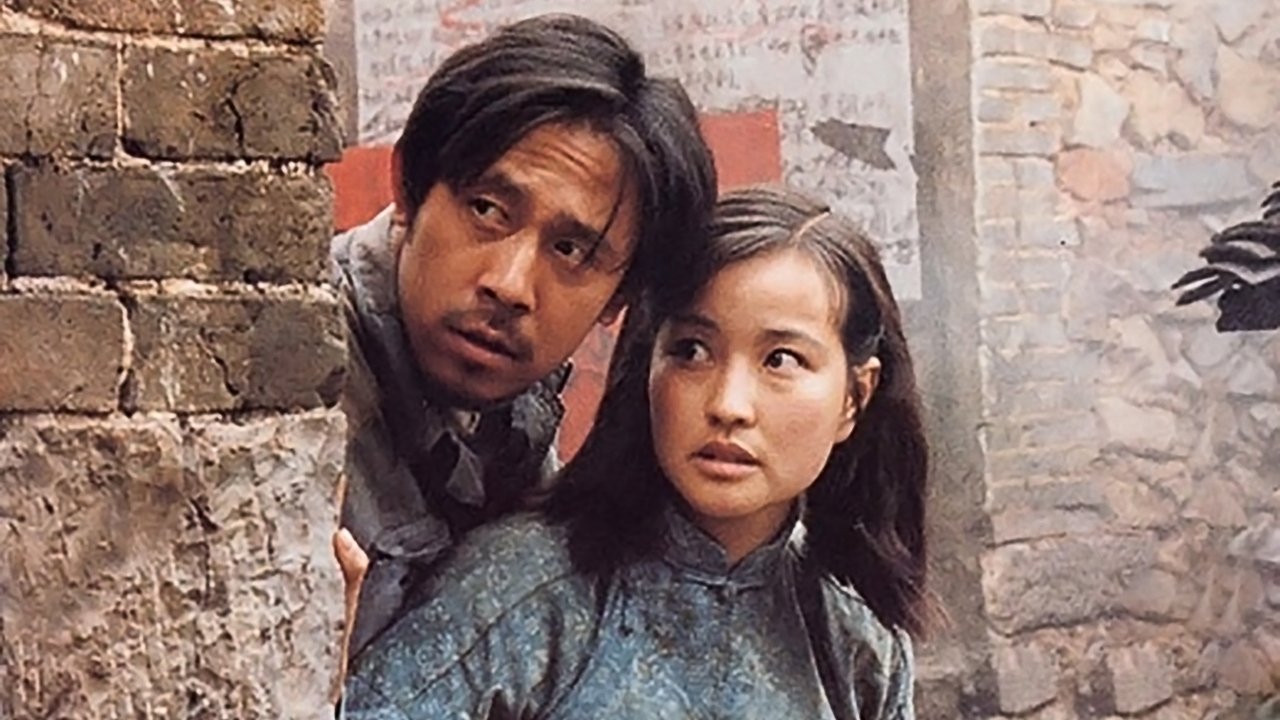
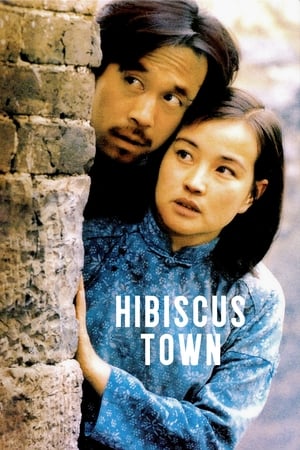
Hibiscus Town
1987 • 2h 44min • ★ 7.94/10 • China
Directed by: Xie Jin
Cast: Liu Xiaoqing, Jiang Wen, Zheng Zaishi, Zhu Shibin, Xu Songzi
Based on a novel by the same name written by Gu Hua, a melodrama about the life and travails of a young woman who lives through the turmoil of the Cultural Revolution.
“Hibiscus Town” is a Chinese movie directed by Xie Jin, and was released in 1987. The film is set in a small town in China during the 1950s, and follows the story of a young woman named Hu Yuyin, who marries a local communist official named Fan Peishen.
The movie explores the impact of the Chinese Communist Revolution on ordinary people’s lives, and how it affects Hu Yuyin’s life and relationships.
The film received critical acclaim both within China and internationally, and was selected as China’s entry for Best Foreign Language Film at the 60th Academy Awards.
“Hibiscus Town” is widely regarded as one of the most important Chinese movies of all time, and is praised for its vivid portrayal of life in rural China during the Communist Revolution.
6. Red Sorghum (1988)
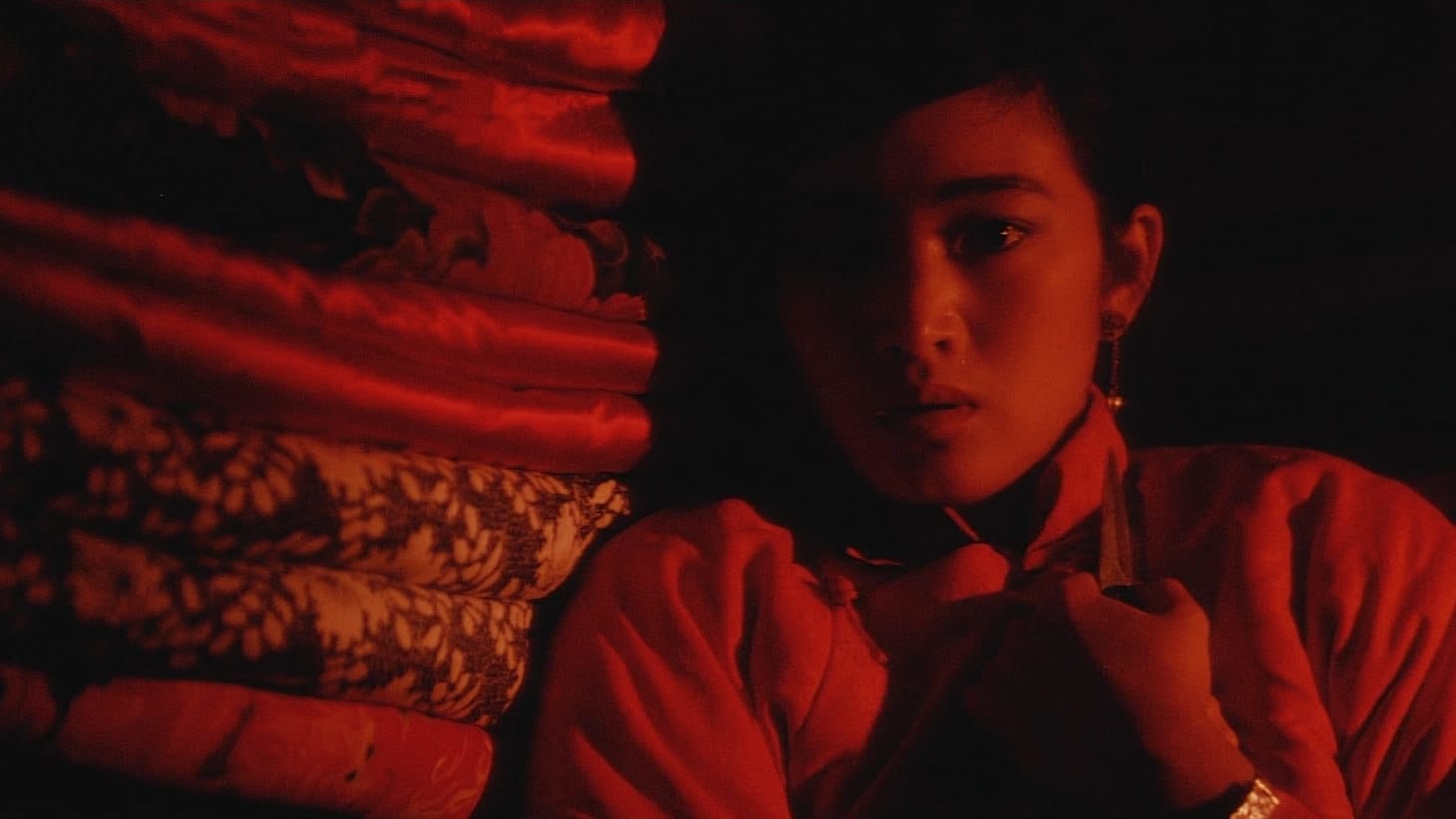
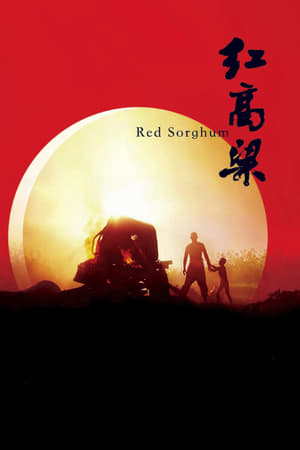
Red Sorghum
1988 • 1h 31min • ★ 7.202/10 • China
Directed by: Zhang Yimou
Cast: Gong Li, Jiang Wen, Teng Rujun, Liu Ji, Qian Ming
An old leper who owned a remote sorghum winery dies. Jiu'er, the wife bought by the leper, and her lover, identified only as "my Grandpa" by the narrator, take over the winery and set up an idealized quasi-matriarchal community headed by Jiu'er. When the Japanese invaders subject the area to their rule and cut down the sorghum to make way for a road, the community rises up and resists as the sorghum grows anew.
“Red Sorghum” is a 1988 Chinese film directed by Zhang Yimou, based on the novel of the same name by Mo Yan. The film is set in the 1930s in rural China and tells the story of a young woman who is forced into an arranged marriage with an older man and becomes the owner of a sorghum wine distillery.
The film is known for its stunning cinematography, particularly the use of color and the depiction of the vast sorghum fields. It also marked the beginning of a fruitful collaboration between director Zhang Yimou and actress Gong Li, who would go on to work together on several more films.
“Red Sorghum” was a critical and commercial success, winning the Golden Bear at the Berlin International Film Festival and helping to launch the Fifth Generation of Chinese filmmakers onto the world stage. It remains a landmark in Chinese cinema and a powerful example of the use of cinematic language to tell a deeply personal and political story.
7. Raise the Red Lantern (1991)
“Raise the Red Lantern” is a critically acclaimed Chinese film from 1991 directed by Zhang Yimou. The film is set in 1920s China and follows the story of a young woman named Songlian, who becomes the fourth wife of a wealthy man named Master Chen.
The film explores the complex power dynamics and brutal rituals of the Chen household, where the wives compete for their husband’s attention and the honor of being chosen to raise the red lantern in the courtyard.
The film delves into themes of patriarchy, female oppression, and the struggle for power and agency in a rigidly hierarchical society.
“Raise the Red Lantern” is widely regarded as a masterpiece of Chinese cinema and has been praised for its stunning cinematography, powerful performances, and masterful storytelling.
The film won numerous international awards, including the Silver Lion at the Venice Film Festival and a nomination for Best Foreign Language Film at the Academy Awards.
The film has been highly influential in the world of cinema and has inspired numerous other works, both within China and beyond. It remains a powerful and moving exploration of the complexities of power and gender in Chinese society, and a testament to the enduring power of cinema to illuminate the human experience.
- Red Sorghum ( Hong gao liang ) ( Het Rode korenveld )
- Red Sorghum
- Hong gao liang
- Het Rode korenveld
- Yimou Zhang, Li Gong, Wen Jiang (Actors)
8. Farewell My Concubine (1993)
“Farewell My Concubine” is a Chinese film directed by Chen Kaige and released in 1993. The movie is set in China during the mid-20th century and tells the story of two men, Cheng Dieyi and Duan Xiaolou, who are trained as Peking opera performers from a young age and become close friends and colleagues.
The film follows their tumultuous lives as they navigate through various political and personal challenges, including their relationships with a woman named Juxian. Against the backdrop of China’s changing society and political upheavals, the movie explores themes of identity, loyalty, love, and sacrifice.
“Farewell My Concubine” was widely praised for its stunning visuals, intricate storytelling, and powerful performances by its lead actors, Leslie Cheung and Zhang Fengyi. The film won numerous awards, including the Palme d’Or at the 1993 Cannes Film Festival, and was also nominated for two Academy Awards.
The movie is considered a classic of Chinese cinema and is regarded as one of the greatest films ever made in China. It has had a significant impact on the country’s film industry, inspiring a new generation of filmmakers and contributing to the global recognition of Chinese cinema as an important artistic medium.
- Leslie Cheung, Fengyi Zhang, Li Gong (Actors)
- Kaige Chen (Director) - Bik-Wa Lei (Writer)
- English (Subtitle)
- Audience Rating: R (Restricted)
9. The Blue Kite (1993)
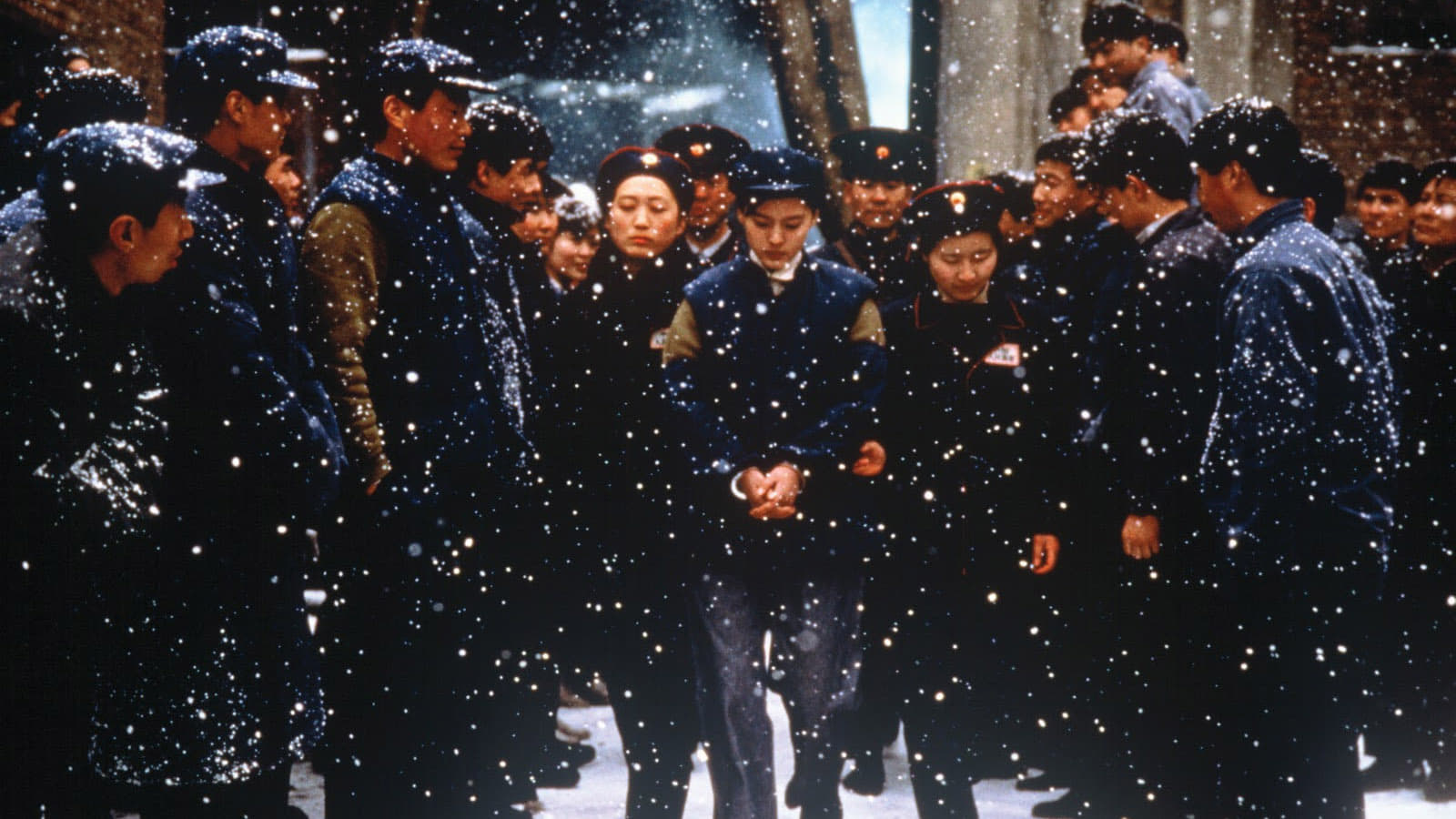
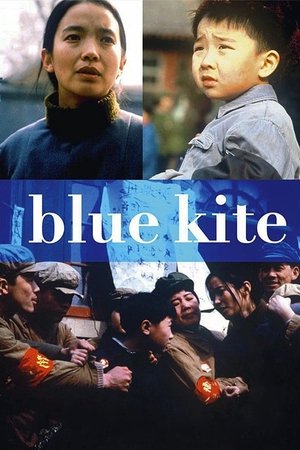
The Blue Kite
A history untold, a memory unfolds.
1994 • 2h 21min • ★ 7.2/10 • China
Directed by: Tian Zhuangzhuang
Cast: Tian Yi, Wenyao Zhang, Xiaoman Chen, Lü Liping, Pu Cunxin
A young man recalls his childhood growing up in a poor alley in Beijing during the 1950s and 1960s.
“The Blue Kite” is a 1993 Chinese film directed by Tian Zhuangzhuang. The movie is set in Beijing during the Cultural Revolution and follows the story of a young boy named Tietou and his family as they struggle to survive during a time of political turmoil and upheaval.
The film is notable for its powerful and emotionally charged storytelling, as well as its unflinching portrayal of the brutality and repression of the Communist regime during the Cultural Revolution. The movie was controversial in China due to its criticism of the government and was banned by the authorities shortly after its release.
Despite its controversial reception, “The Blue Kite” has been widely praised by critics and is regarded as a landmark work of Chinese cinema. The movie won several awards at international film festivals, including the Grand Prix at the Tokyo International Film Festival, and has been recognized for its powerful depiction of the human cost of political repression and authoritarianism.
No products found.
10. In the Heat of the Sun (1994)
“In the Heat of the Sun” is a Chinese movie directed by Jiang Wen, and was released in 1994. The film is set in the summer of 1975, during the Cultural Revolution in China, and follows the story of a teenage boy named Ma Xiaojun, who spends his days with his friends exploring the city of Beijing and getting into mischief.
The movie is based on the semi-autobiographical novel “Wild Beast” by Wang Shuo, and offers a nostalgic and often humorous look at life in China during this tumultuous period.
The film was a critical and commercial success both within China and internationally, and is widely regarded as one of the best Chinese movies of the 1990s. It won numerous awards, including the Best Actor award for Xia Yu at the 1994 Venice Film Festival.
“In the Heat of the Sun” is praised for its vivid portrayal of teenage rebellion and coming of age, as well as its commentary on the complex political and social climate of China during the Cultural Revolution.
- Ashe, Jenny (Author)
- English (Publication Language)
- 02/11/1994 (Publication Date) - Harlequin Mills & Boon Ltd (Publisher)
11. To Live (1994)
“To Live” is a 1994 Chinese film directed by Zhang Yimou, based on the novel of the same name by Yu Hua. The film spans several decades of Chinese history, from the 1940s to the 1970s, and tells the story of a couple, Fugui and Jiazhen, and their struggles during this tumultuous period.
The film portrays the impact of political and social changes on ordinary people’s lives, including the civil war, the Communist takeover, the Great Leap Forward, and the Cultural Revolution. Despite these hardships, Fugui and Jiazhen’s family manage to persevere and find meaning in their lives.
“To Live” is a beautifully shot and emotionally resonant film, with powerful performances from its lead actors, Ge You and Gong Li. The film won the Grand Jury Prize at the Cannes Film Festival and was nominated for the Academy Award for Best Foreign Language Film.
However, the film was also banned in China due to its criticism of the Communist government’s policies and its depiction of the Cultural Revolution. Nonetheless, it remains a significant work of Chinese cinema and a poignant reflection on the human experience during a turbulent time in China’s history.
- Ge, You (Actor)
- English, French, Spanish (Subtitles)
- Audience Rating: NR (Not Rated)
12. Devils on the Doorstep (2000)
“Devils on the Doorstep” is a Chinese film from 2000, directed by Jiang Wen. The film is set during the Japanese occupation of China in the 1940s and follows the story of a village in northern China that is taken over by the Japanese military.
The film explores the complex and often brutal relationships between the Chinese villagers and the Japanese soldiers, as well as the tensions that arise within the village itself. The central character is Ma Dasan, a villager who is forced to act as a translator for the Japanese army and is caught in the middle of the conflict.
“Devils on the Doorstep” is a powerful and moving film that deals with themes of war, oppression, and the struggle for survival in the face of extreme adversity. The film has been widely acclaimed for its stunning cinematography, powerful performances, and complex storytelling.
“Devils on the Doorstep” won the Grand Prix at the Cannes Film Festival in 2000, and has since been regarded as a masterpiece of Chinese cinema. The film remains a powerful and moving exploration of the impact of war and violence on ordinary people, and a testament to the enduring power of cinema to shed light on the human condition.
- Wen Jiang, Kenya Sawada, Yihong Jiang (Actors)
- Wen Jiang (Director) - Fengwei You (Writer)
- English (Subtitle)
- Audience Rating: Unrated (Not Rated)
13. Suzhou River (2000)
“Suzhou River” is a Chinese film directed by Lou Ye and released in 2000. The movie is a romantic thriller that takes place in the city of Shanghai and revolves around the love story between a motorcycle courier named Mardar and a young woman named Meimei.
The film uses a non-linear narrative structure and is told from the perspective of an unnamed narrator who recalls the events of the story, which include a kidnapping, a mysterious disappearance, and a search for lost love. The movie explores themes of memory, identity, and the impact of technology on human relationships.
“Suzhou River” was praised by critics for its haunting cinematography and its portrayal of modern Shanghai as a city in flux. The film won several awards, including the NETPAC Award at the Rotterdam International Film Festival and the Best Feature Film award at the Buenos Aires International Festival of Independent Cinema.
The movie is considered a landmark of Chinese independent cinema and is often cited as an example of the “Sixth Generation” of Chinese filmmakers who emerged in the 1990s and early 2000s. Its influence can be seen in the work of subsequent generations of Chinese filmmakers, and it remains a compelling and thought-provoking film for audiences around the world.
14. Hero (2002)
“Hero” is a 2002 Chinese martial arts film directed by Zhang Yimou and stars Jet Li, Maggie Cheung, and Zhang Ziyi. The movie is set in ancient China during the Qin dynasty and tells the story of a nameless warrior who is summoned by the King of Qin to recount his heroic battles against three assassins who threatened his life.
The film is notable for its visually stunning cinematography and action sequences, which feature intricate choreography and beautiful use of color. The movie also explores themes of sacrifice, loyalty, and the role of the individual in relation to the state.
“Hero” was a critical and commercial success, both in China and internationally, and is regarded as one of the most influential and iconic films in Chinese cinema. The movie won several awards at international film festivals, including the Grand Prix at the Cannes Film Festival, and has been praised for its artistic merit and powerful storytelling.
- Hero - DVD Brand New
- Jet Li, Tony Leung Chiu Wai, Maggie Cheung (Actors)
- Yimou Zhang (Director) - Yimou Zhang (Writer) - Philip Lee (Producer)
- English, Spanish (Subtitles)
- Audience Rating: PG-13 (Parents Strongly Cautioned)
15. Blind Shaft (2003)
“Blind Shaft” is a 2003 Chinese film directed by Li Yang. The film is based on a true story and follows two coal miners who murder their fellow worker in order to scam compensation money from the mine’s management. They then move on to a new mine and repeat the same scheme, but their plan begins to unravel when they form a relationship with their next victim’s young apprentice.
The film explores the harsh working conditions and corruption in China’s coal industry, as well as the moral decay that can result from such desperation. It features strong performances from its lead actors, Wang Shuangbao and Li Yixiang, and won numerous awards at international film festivals, including the Silver Bear at the Berlin International Film Festival.
“Blind Shaft” is a gripping and thought-provoking film that sheds light on the darker side of China’s economic growth and the human cost of its development. It was also notable for its critical commentary on Chinese society and government, which resulted in it being banned in China.
- Factory sealed DVD
- Qiang Li, Baoqiang Wang, Shuangbao Wang (Actors)
- Yang Li (Director) - Yang Li (Writer)
- English (Subtitle)
- English (Publication Language)
16. Still Life (2006)
“Still Life” is a Chinese film from 2006, directed by Jia Zhangke. The film is set in the Three Gorges area of China, which is undergoing massive transformation due to the construction of the Three Gorges Dam, and follows two separate but interrelated storylines.
The first storyline follows a miner named Han Sanming, who returns to the city of Fengjie after 16 years to look for his ex-wife and daughter. The second storyline follows Shen Hong, a nurse from Shanxi who has come to Fengjie to look for her husband, who has been missing for two years.
Through these two storylines, the film explores the impact of the massive changes taking place in China on the lives of ordinary people. “Still Life” is a deeply poignant and meditative film, which portrays the human cost of China’s rapid modernization and the displacement and dislocation experienced by many people as a result.
The film has won numerous awards, including the Golden Lion at the Venice Film Festival, and has been widely acclaimed for its powerful storytelling, stunning cinematography, and profound insights into contemporary China. “Still Life” is widely regarded as a masterpiece of Chinese cinema and an essential film for anyone interested in exploring the complex and rapidly changing landscape of modern China.
- Han Sanming, Zhao Tao, Li Zhu Bing (Actors)
- Jia Zhang-ke (Director)
17. City of Life and Death (2009)
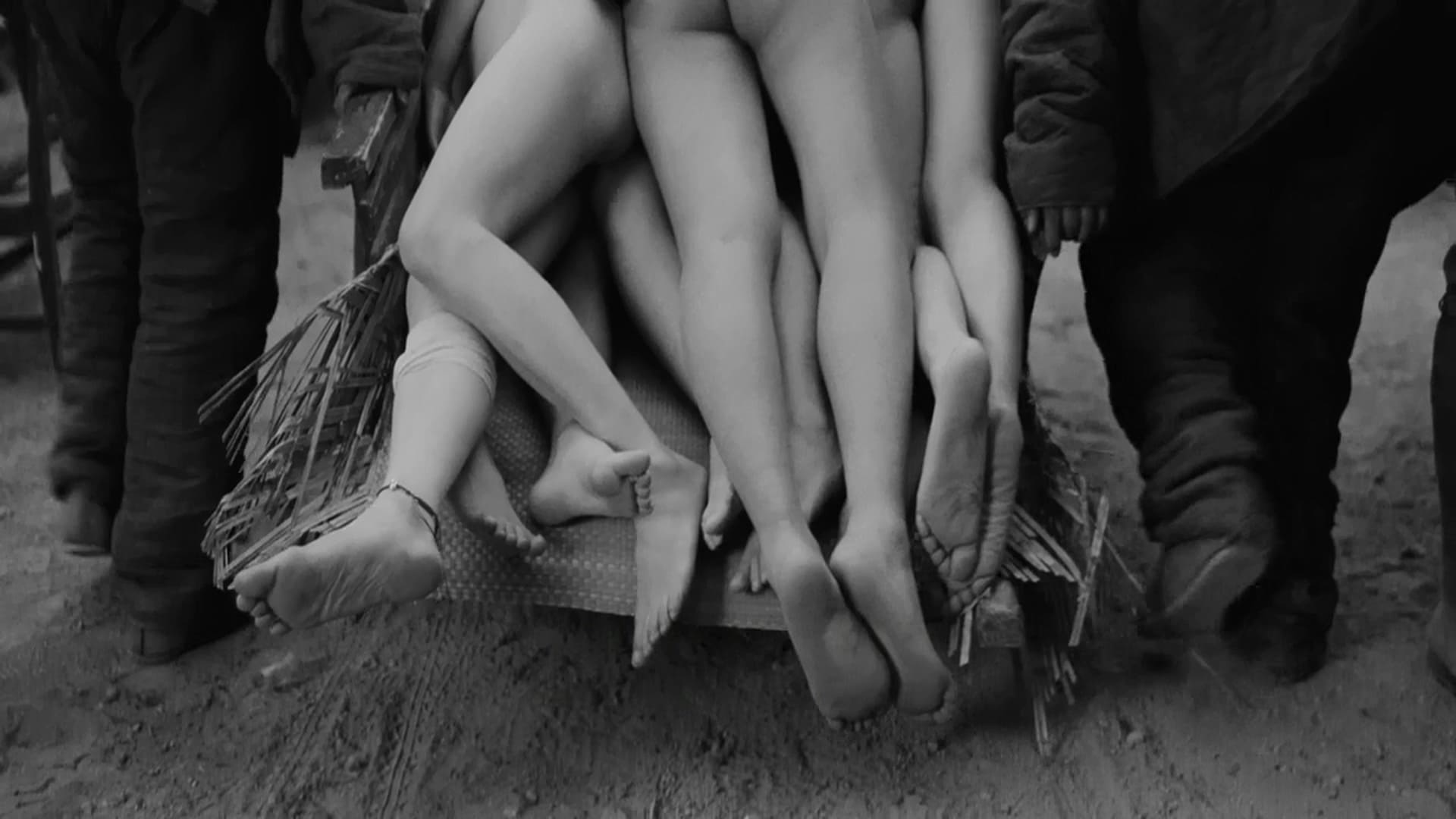
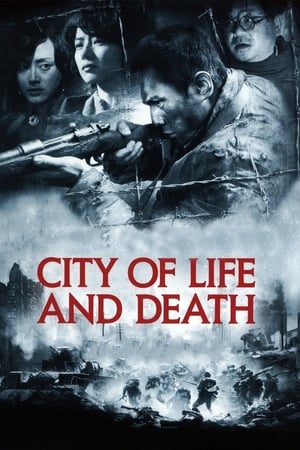
City of Life and Death
2009 • 2h 12min • ★ 7.404/10 • China
Directed by: Lu Chuan
Cast: Liu Ye, Gao Yuanyuan, Hideo Nakaizumi, John Paisley, Beverly Peckous
In 1937, during the height of the Second Sino-Japanese War, the Imperial Japanese Army has just captured Nanjing, then-capital of the Republic of China. What followed was known as the Nanking Massacre, or the Rape of Nanking, a six week period wherein tens of thousands of Chinese soldiers and civilians were killed.
“City of Life and Death” is a Chinese film directed by Lu Chuan and released in 2009. The movie is a dramatization of the 1937 Nanking Massacre, in which Japanese troops invaded the Chinese city of Nanking and committed numerous war crimes, including the rape and murder of civilians.
The film is shot in black and white and features a large ensemble cast, with Chinese actor Liu Ye playing the lead role of Lu Jianxiong, a Chinese soldier who attempts to protect a group of civilians during the invasion. The movie depicts the atrocities committed by the Japanese army, as well as the heroism and resilience of the Chinese people in the face of overwhelming violence and destruction.
“City of Life and Death” received critical acclaim for its powerful and harrowing portrayal of the Nanking Massacre, as well as its cinematic techniques and visual style. The movie won numerous awards, including Best Director and Best Cinematography at the Asian Film Awards and the Grand Jury Prize at the San Sebastian International Film Festival.
The film has been praised for its ability to convey the horror and tragedy of war, and its depiction of the human toll of violence and conflict. It remains a powerful and important work of Chinese cinema, and a testament to the resilience of the human spirit in the face of unimaginable cruelty.
18. Kaili Blues (2015)
“Kaili Blues” is a 2015 Chinese art-house film directed by Bi Gan. The movie follows the story of a doctor named Chen Sheng who travels to his hometown of Kaili to search for his nephew, but instead finds himself embarking on a surreal and poetic journey through time and memory.
The film is notable for its dreamlike and abstract style, with long takes, unconventional camera movements, and a nonlinear narrative structure. The movie is also rich in symbolism and explores themes of identity, memory, and the passage of time.
“Kaili Blues” received critical acclaim for its innovative filmmaking techniques and powerful storytelling. The movie won several awards at international film festivals, including the Best Emerging Director award at the Locarno Film Festival. The film has been praised for its unique and mesmerizing visual style, as well as its deeply emotional and philosophical themes.
- Item Package Quantity: 1
- Country of origin:- United States
- Package Dimensions : 6.66L x 5.31W x 0.47H (inches)
- Package Weight: 2.24 ounces
- Chen Yongzhong (Actor)
19. An Elephant Sitting Still (2018)
“An Elephant Sitting Still” is a Chinese movie directed by Hu Bo, and was released in 2018. The film follows the stories of four people living in a small town in northern China, whose lives intersect over the course of one day as they all set out to find a mythical elephant said to be sitting still, unmoving, and unaffected by the chaos and suffering of the world.
The film was praised for its beautiful cinematography, its emotional depth, and its unflinching look at the struggles of ordinary people living in modern-day China. Despite its lengthy runtime of nearly four hours, “An Elephant Sitting Still” has been hailed as a masterpiece of contemporary Chinese cinema and a poignant reflection on the human condition.
Unfortunately, the film’s director, Hu Bo, tragically took his own life shortly after the film’s completion, making “An Elephant Sitting Still” his only feature-length work. Despite this, the movie has continued to garner critical acclaim and has cemented its place as a modern classic of Chinese cinema.
20. So Long, My Son (2019)
“So Long, My Son” is a 2019 Chinese film directed by Wang Xiaoshuai. The film tells the story of two families over the course of three decades, starting from the 1980s to the present day. It follows the lives of two couples, who are close friends, as they navigate the changes and challenges of Chinese society, including the one-child policy, political turmoil, and economic development.
The film features a strong cast, including Wang Jingchun and Yong Mei, who won the Silver Bear for Best Actor and Best Actress at the 2019 Berlin International Film Festival for their performances. The film also won several other awards at international film festivals, including the Golden Horse Award for Best Feature Film.
“So Long, My Son” is a poignant and intimate portrayal of life in China, which explores universal themes of grief, guilt, and forgiveness. It is a moving and nuanced film that reflects on the personal toll of China’s rapid modernization and the struggle to maintain familial ties amidst the societal changes.
3 Characteristics of Chinese Movies
Emphasis on symbolism and metaphor: Chinese movies often use symbolism and metaphor to convey complex themes and ideas. These symbols can be drawn from nature, mythology, or historical events, and are often used to represent abstract concepts like morality, social issues, or political power.
Focus on relationships: Chinese movies often emphasize the importance of relationships between individuals, whether it be romantic love, family bonds, or friendships. These relationships are often portrayed as being complex and multifaceted, with conflicts and tensions arising from differences in class, social status, or personal values.
Blend of traditional and modern elements: Many Chinese movies blend traditional Chinese culture with modern themes and influences. This can be seen in the use of traditional Chinese music or dance alongside modern settings and technology, or in the incorporation of ancient Chinese philosophy or literature into contemporary storylines. This blend of old and new reflects the complex and evolving nature of Chinese society and culture.
3 Reasons To Watch Chinese Movies
Rich cultural heritage: Chinese cinema has a long and storied history, with a diverse range of styles and genres that reflect the country’s rich cultural heritage. From epic historical dramas to colorful musicals, Chinese movies offer a unique perspective on the world and a deep appreciation for tradition and history.
Acclaimed filmmakers: China has produced some of the world’s most talented and visionary filmmakers, including Zhang Yimou, Wong Kar-wai, and Ang Lee. These directors have been recognized for their groundbreaking work in the film industry, winning numerous awards and accolades for their cinematic achievements.
Vibrant contemporary cinema: In recent years, Chinese cinema has undergone a creative resurgence, with a new generation of filmmakers exploring bold and innovative storytelling techniques. From gritty urban dramas to visually stunning action movies, Chinese cinema offers a diverse and dynamic range of films that are sure to captivate and inspire audiences around the world.
Best Chinese Movies – Wrap Up
In conclusion, Chinese cinema has a rich and diverse history, ranging from epic historical dramas to innovative art-house films. Some of the best Chinese movies include “Raise the Red Lantern,” “In the Mood for Love,” “Crouching Tiger, Hidden Dragon,” “Farewell My Concubine,” “To Live,” “Hero,” and “Kaili Blues,” among many others. These movies showcase the range of storytelling and filmmaking styles that exist in Chinese cinema, from sweeping epic narratives to intimate character studies, from lush period dramas to gritty urban thrillers. Overall, Chinese movies continue to captivate audiences around the world with their unique perspectives, powerful storytelling, and innovative techniques.



![Spring in a Small Town (DVD) [1948]](https://m.media-amazon.com/images/I/514iQKsOuXL.jpg)
![Yellow Earth [VHS]](https://m.media-amazon.com/images/I/51GY42KRRSL.jpg)

![Red Sorghum [1987] [DVD]](https://m.media-amazon.com/images/I/41Yg6HIb6TL.jpg)

![Farewell My Concubine [DVD]](https://m.media-amazon.com/images/I/41iZldF84fL.jpg)

![To Live (MGM World Films) (1994) [DVD]](https://m.media-amazon.com/images/I/51AO2snZDUL.jpg)
![Devils on the Doorstep [DVD]](https://m.media-amazon.com/images/I/518X0Y18T8L.jpg)

![Suzhou River [DVD] [2000] [Region 1] [US Import] [NTSC]](https://m.media-amazon.com/images/I/51zdxU4iuUL.jpg)


![Still Life [Blu-ray]](https://m.media-amazon.com/images/I/51dR1kCS2yL.jpg)


![Kaili Blues [Blu-ray]](https://m.media-amazon.com/images/I/41gFsARpRKL.jpg)
![An Elephant Sitting Still [DVD]](https://m.media-amazon.com/images/I/41c1+FTIQmL.jpg)
![So Long My Son [DVD] [2019]](https://m.media-amazon.com/images/I/41Hfs99W2AL.jpg)
